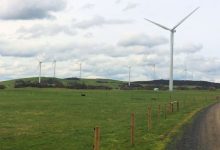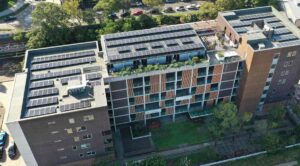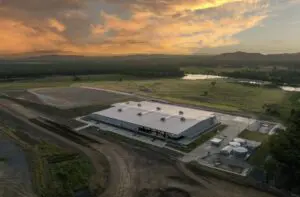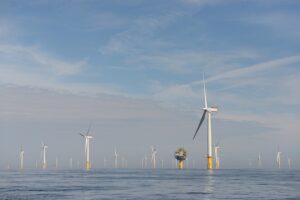The Bald Hills wind farm in Victoria has been court ordered to stop making loud noise at night and to pay two neighbours of the project a total of $260,000, in part for “aggravated damages,” in an unprecedented legal decision.
The Victorian Supreme Court on Friday delivered a final judgment on the long-running and controverisal case, in which two landowners – John Zakula and Noel Uren – took civil action against the Tarwin Lower wind farm, seeking damages for health impacts they said had been caused by the noise from the turbines.
Justice Melinda Richards ruled that the noise from turbines of the 106MW wind farm had created a nuisance to its neighbours and ordered a three-month injunction “restraining” its owners from “continuing to permit noise from wind turbines to cause nuisance at night” and to take the necessary measures to “abate nuisance.”
What exactly this will mean to the operation of the wind farm – which is owned by Infrastructure Capital Group (ICG) and the Energy Infrastructure Trust (EIT) and operated and maintained under a third-party contract by Vestas – is unclear, but it does not seem to require the project to be shut down at night.
It may, instead, require the operators to prove, within that three month period, that the wind farm is fully complying with the conditions of its permit, and is meeting the state planning standards for wind farm noise, which in Victoria is governed by the EPA.
According to the EPA, this essentially requires compliance with the New Zealand Noise Standard; the provision of annual statements detailing complaints, maintenance activities and noise remediation actions; and the undertaking of noise monitoring procedures every five years to ensure ongoing compliance with the relevant noise limits.
It may also require the turbines located near to the residence of one of the plaintiffs – Zakula, who lives just over 1km from the nearest turbine (Noel Uren sold his adjoining property in 2018) – to be curtailed on occasion overnight.
“Bald Hills has not established that the sound received at either Mr Uren’s house or Mr Zakula’s house complied with the noise conditions in the permit at any time,” Justice Richards said in a judgment that focused heavily on the wind farm’s poor track record on community engagement and social licence.
“Bald Hills’ conduct … was high-handed and warrants an award of aggravated damages. The manner in which Bald Hills dealt with the plaintiffs’ reasonable and legitimate complaints of noise, over many years, at least doubled the impact of the loss of amenity each of them suffered at their homes,” she said.
“Noise from the turbines on the wind farm has caused a substantial interference with both plaintiffs’ enjoyment of their land.
“Specifically, their ability to sleep undisturbed at night in their own beds in their own homes.”
On that count, Bald Hills was ordered to pay the two men a total of $260,000, including $84,000 to John Zakula for “distress, inconvenience and annoyance and $46,000 for Noel Uren, and then aggravated damages of an additional $84,000 for Zakula and $46,000 for Uren.
This sum, it is worth noting, is substantially lower that what the legal team – headed up Dominica Tannock – was seeking which, according to a report in the South Gippsland Sentinel Times earlier this week, might have been “damages in the millions.”
Notably, Justice Richards says that while the plaintiffs originally had claimed that “infrasound” from the wind turbines had constituted a nuisance, “the case at trial focused on noise alone. They did not separately address infrasound in their evidence or submissions, and neither does this judgment.”
The judge also ruled that Bald Hills could “reasonably have taken at least two further precautions to reduce the noise levels at the plaintiffs’ homes,” in response to their complaints.
“It could have implemented selective noise optimisation of nearby turbines. It could also have remedied the gearbox tonality issue that was identified by MDA in December 2016.”
More broadly, Richards said that it was in the public interest for the generation of renewable energy by the wind farm to continue, but that it should not be a “binary choice between the generation of clean energy … and a good night’s sleep for its neighbours.
“It should be possible to achieve both,” she said.
Bald Hills Wind Farm said in an emailed statement to RenewEconomy on Friday that it was “currently absorbing the judgement and its implications, and therefore [would] not be commenting specifically about the ruling detail at this stage.”
RE Alliance, which works ensure the interests and needs of regional communities are considered and aligned with renewable energy development, said on Friday that it was “too early” to say whether this decision would set a legal precedent.
“While it’s a shame it got to this point, we welcome that the issue has been resolved,” said RE Alliance national director Andrew Bray.
“The Victorian government established a General Environmental Duty specifically to provide clarity around safe operation of wind farms for both neighbours and proponents.
“Wind Farms are highly regulated and the EPA also has the power to enforce companies to show compliance with the General Environmental Duty.”










